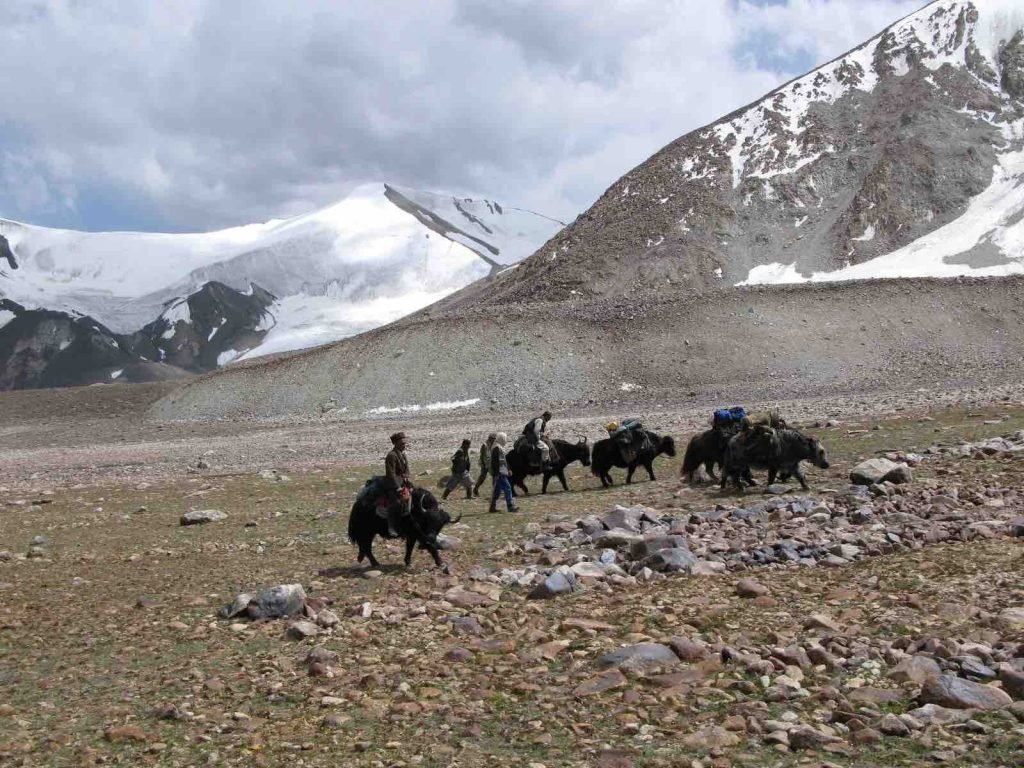A Rising Concern – Afghanistan Grapples with the Return of the Taliban and the Shadow of Terrorism

Local residents in Walkhan, NE Afghanistan, near the Chinese and Tajikistan border in Badakhshan province. Photo: @ADN Archive
By Ilhamuddin Afghan
In the rugged landscapes of Afghanistan, the return of the Taliban to power for the second time has sent ripples of concern across its borders.
Neighboring countries are on high alert as reports emerge of terrorist groups, including the Islamic Movement of Uzbekistan (IMU) and the Islamic Movement of East Turkestan, gaining traction in the northern provinces, especially in Badakhshan that borders China.
Badakhshan, once a serene region, is now a focal point for worry. Recent reports suggest that at least three hundred families associated with groups like the IMU, Jamaat Ansarullah of Tajikistan, and the Islamic Movement of East Turkestan have found settlement in Badakhshan districts.
The composition of these groups is diverse, with members hailing from Tajikistan, Uzbekistan, Turkmenistan, and Chinese Uyghurs, all allegedly linked to Al-Qaeda.
Former Afghan National Army official Abidullah has sounded the alarm, expressing deep concern about the financial strength and escalating activities of these groups over the past two years.
“Over the past two years, these groups have significantly strengthened their financial resources and actively advanced, consistently preparing for attacks,” warned Abidullah.
Local residents corroborate the fear, attesting that these terrorist entities operate with unsettling freedom.
Global Concerns and Afghanistan’s Security Challenges
The echoes of concern reach beyond Afghanistan’s borders. Both China and Pakistan have urged the Taliban to address the security apprehensions raised by neighboring nations. Central Asian countries, Afghanistan’s northern neighbors, have also voiced similar anxieties.
Pakistan, in particular, has repeatedly expressed worry about the presence of terrorist groups in Afghanistan, pointing to the Pakistani Taliban as a contributing factor to the insecurity in their own country.
At a recent conference on Afghanistan, United Nations Secretary-General Anthony Guterres underscored the gravity of the situation, emphasizing that the sustained presence of terrorist groups in Afghanistan poses not only a threat to the nation but also to the broader region and the world. Guterres specifically highlighted the additional concern of drug trafficking exacerbating the issue.
In the past two years, Afghanistan has witnessed numerous heavy attacks, including assaults on the Russian embassy, members of a Chinese company, and the Pakistani embassy, all claimed by terrorist organizations such as Daesh.
Analysts argue that the Taliban has struggled to effectively curb the activities of various terrorist groups operating within the country.
But despite initial optimism surrounding the Taliban’s return to power, officials’ sentiments have shifted towards worry. Russian Defense Minister Sergei Shoigu expressed concern about the existence of multiple terrorist groups in Afghanistan during a meeting with his Kazakh counterpart recently.
In regional meetings over the past two years, concerns have consistently been voiced about the alarming situation in Afghanistan and the expanding presence of terrorist groups. While the Taliban denies the existence of these groups within Afghanistan, major attacks are consistently claimed by the Daesh group, underscoring the persistent security challenges in the region.
As Afghanistan navigates through these complex dynamics, the international community watches with a heightened sense of unease, recognizing the urgent need for collaborative efforts to address the multifaceted threat posed by the resurgence of the Taliban and the looming shadow of terrorism.
Ilhamuddin Afghan is a university professor based in Afghanistan.
Note: The contents of the article are of sole responsibility of the author. Afghan Diaspora Network will not be responsible for any inaccurate or incorrect statement in the articles.






